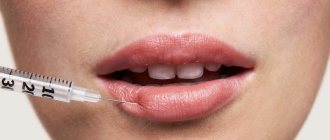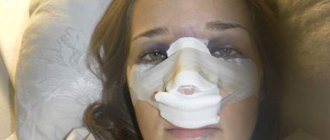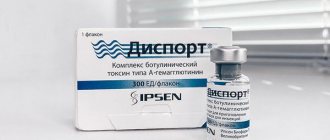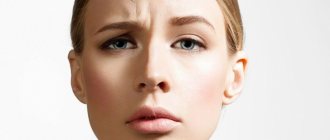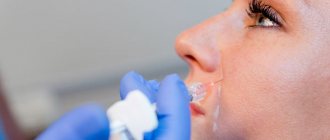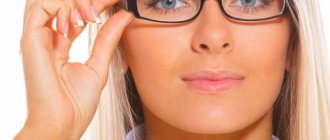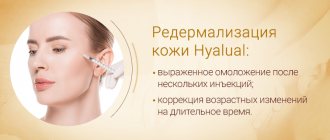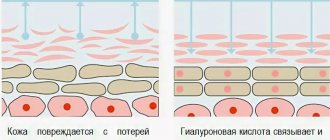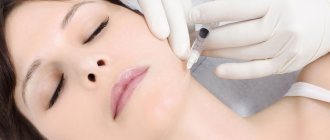Why does the question “biorevitalization and alcohol” come up so often and how to answer it correctly? Because often women who resort to such a rejuvenation procedure do it on the eve of some event. They want to look presentable, impressive and bright, but not deny themselves the joys of the feast. The desire is quite understandable and natural.
Important to remember! It is better to plan a visit to a cosmetologist about two weeks before the “H” time. This applies not so much to alcohol, but to the time of complete recovery after the procedure. If you decide to carry out the manipulation in a day or two, then it is better to postpone it.
Briefly about the main limitations after facial biorevitalization
Drinking alcohol after biorevitalization with hyaluronic acid is not the only prohibition. There are several post-treatment rules, the implementation of which will ensure the expected effect of the procedure for the maximum possible time.
Although biorevitalization is considered safe, it is still an interference in the natural functioning of the body. Firstly, the integrity of the skin is compromised - drugs are administered by microinjections to varying depths. Secondly, although hyaluronic acid is an integral component of the intercellular fluid of the human body, in this case our body initially perceives it as a foreign agent.
Therefore, the development of edema and other side effects is quite natural and should not cause concern, much less panic. You just need to know what not to do after the procedure, and when uncomfortable processes cease to be the norm and require the intervention of a specialist.
First of all, the doctor or cosmetologist will prohibit drinking alcohol after biorevitalization of the face. The duration of this ban is not strictly limited. Even the experts themselves did not come to a consensus on this matter. But 3-4 days after the procedure are considered optimal.
Now down the list:
- limit the consumption of salty, hot, spicy, smoked and pickled foods. They retain water in the body and thereby further increase the inevitable swelling;
- Don't touch your face at all for the first 24 hours. Next, limit yourself only to light hygiene procedures and the application of special products, if recommended by the cosmetologist;
- do not use decorative and caring cosmetics until the wounds from injections have healed;
- limit physical activity as much as possible, temporarily stop playing sports and fitness;
- do not visit the bathhouse, sauna, swimming pool and beach to minimize exposure to high temperatures, humidity, and infection;
- Avoid exposure to direct sunlight and do not visit the solarium.
There is no need to be scared, all these restrictions are temporary. They must be observed for a maximum of two weeks. During this time, the body will fully recover after the procedure, hyaluronic acid will “take root” and will act exactly as expected.
But many are still interested in whether it is possible to drink alcohol after biorevitalization of the face. More likely, even why it’s impossible and what will happen if this ban is violated.
What is the danger of alcohol during invasive procedures?
Experts have now developed many external products that are similar in composition and action to mixtures used in mesotherapy, but the effect of injection into the structural layers of the skin has proven to be better, although at the same time clients face some risks. Many women who first learned about mesotherapy think that going to the salon just once will be enough to become a beauty.
The injection works over time - there may not be an immediate effect
As a result of the insertion of a needle, the skin swells and swells, bruising and hematomas appear. They go away in a couple of days, leaving no traces, if you follow all the advice of the cosmetologist. For speedy healing, homeopathy is used. But alcoholic drinks worsen skin health after cosmetic procedures.
The number of injections is directly proportional to the chance of encountering problems
The choice of invasive anti-aging measures in our time is quite wide - Botox or Dysport injections, biorevitalization, bioreinforcement, mesotherapy and many others. Carrying out any of them imposes a ban on drinking alcohol - the period varies depending on the type of procedure, but on average they are similar.
Alcohol after injection biorevitalization
Whether it is possible to drink alcohol after biorevitalization, everyone will answer for themselves, having learned about its effect on the skin in principle, and after the procedure in particular.
“Beauty injections” enable a woman to retain youth and beauty for an indefinite period of time. If you lead a healthy lifestyle and regularly carry out appropriate cosmetic procedures, then chrono and photoaging of the skin will be delayed.
What happens during biorevitalization such that some restrictions are needed in the usual way of life? The drugs help to find the body’s hidden reserves and force fading processes to resume at the same level.
The product is injected under the skin by injection - therefore, the integrity of the skin is compromised. This is the “gateway” for infectious agents. If the immune system is strong and the woman follows all the cosmetologist’s recommendations, then the risk of side effects (meaning pathological) is minimal. Alcohol reduces the body's defenses.
Consequently, facial biorevitalization and alcohol are not compatible.
Reasons for the incompatibility of drugs with alcohol
Is it possible to drink alcohol before and after biorevitalization - decide for yourself. But it is quite possible to wait a couple of days before the procedure and the same amount of time after it.
Alcohol and hyaluronic acid are unlikely to be compatible, as are all medicinal substances that retain water in the human body. But there are a number of other factors:
- ethanol dilates blood vessels and increases blood flow. Hyaluronate, which has just entered the epidermis, can be transported by the bloodstream to a completely unexpected place (gel migration);
- acid attracts liquid. One molecule of hyaluronic acid can hold 500 molecules of water, thereby achieving maximum and deep hydration of the skin. Alcohol initially increases swelling and then helps remove fluid, which neutralizes the effect of the procedure;
- a negative impact on metabolic processes can both retain fillers in the blood, causing side effects in the form of compactions, the formation of fibrous nodules or even suppuration, and reduce the effectiveness of biorevitalization.
Consequently, alcohol is the reason why the effect of biorevitalization is short-lived or pronounced side effects develop in the form of edema.
Important fact! There have been cases where swelling on the face after drinking weak alcohol, even in small doses, 10 hours after the procedure led to such swelling that they had to be eliminated in a hospital setting.
How will alcohol affect the skin?
Alcohol negatively affects the human body - everyone knows this. Alcoholic drinks, especially strong ones, are a kind of “cultural legal drug.” If a woman drank a glass of good red wine or champagne, naturally no one would judge her.
Ethanol, as an active component of any alcoholic drink, is a chemical compound with a very complex molecular structure and even more complex reactions in which it enters with all components of the human body.
- First of all, it removes fluid from our body, which first leaves the subcutaneous fatty tissue. Hence the grayish, unhealthy appearance of the face after alcoholic outpourings.
- Further, alcohol promotes the accumulation of toxins, dilation of blood vessels, and the destruction of vitamins, especially C and E. And these vitamins, as you know, are recognized “guardians” of youth and beauty. They participate in the synthesis of collagen and elastin and are components of the fibers of these protein compounds.
- Due to increased blood flow in the tissues, swelling increases. The oval of the face becomes blurry, sags, and bluish-purple bags appear under the eyes.
This is how alcohol works in principle. Now imagine all these reactions at the moment when a substance is introduced into the epidermis and dermis, which attracts moisture, stimulates the production of collagen and elastin, supplies vitamins, minerals, amino acids and other substances (preparations for bioreitalization may contain such components).
After biorevitalization, drinking wine, beer or other “heavier” alcoholic drinks is not recommended.
How soon can you drink alcohol?
We have already found out that you cannot drink alcohol after biorevitalization, but how long does this last? Experts do not have a consensus on this matter.
- Some indicate a figure of 8-10 hours after the procedure. They claim that exactly how long will it take for the hyaluronic acid introduced during biorevitalization to dissolve and not be able to react with alcohol in an unpredictable way.
- Others believe that at least 2-3 days should pass before taking part in the feast. And it doesn’t matter whether it’s beer, wine, good cognac or vodka - they strongly do not recommend drinking such drinks after biorevitalization.
There are no scientifically proven facts that would speak in favor of one or another hypothesis. Therefore, you need to rely on common sense and the instinct of self-preservation. Nothing bad will happen if you pick up a glass in a new form after complete restoration. In general, abstinence for 3-5 days is considered reasonable.
The cosmetologist will answer the question whether alcohol is allowed after biorevitalization:
Is it possible to drink alcohol after non-injection biorevitalization?
Drinking alcohol before and after biorevitalization performed using hardware methods, without injections - that is, without skin punctures, is also not recommended.
Let's remember the rules for preparing for “beauty injections,” which are relevant regardless of the method of introducing hyaluronic acid under the skin:
- do not drink alcohol,
- do not eat food that retains fluid in the body;
- limit physical activity;
- do not take anticoagulants.
These are the basic requirements for the manipulation to be successful and for the rehabilitation period to be as short as possible.
After the biorevitalization procedure using non-injection methods, you should also not drink alcohol, since it can increase swelling not due to the formation of punctures. After all, it is not the holes left by the syringe that are “to blame” for this phenomenon, but the substance that got into the epidermis
Do you want to show off the queen in a luxurious dress at a social event, with a beaming smile on her charming face, with a glass of champagne or wine, not only immediately after the procedures? Then let alcohol become only a pleasant accompaniment to easy communication, and not a mandatory attribute of any, even minor, feast.
Summing up
According to reviews from those who, disobeying doctors’ advice, started drinking on the second day after biorevitalization, they coped with swelling for quite a long time. The face looked especially sad in the morning. Moreover, no amount of ice cubes could remove the puffiness. Active massage helps a little, but it reduces the effectiveness of the procedure, promoting the resorption of hyaluronic acid.
We suggest you find out which country drinks alcohol the most?
For the reasons listed above, those who are ready to invest in their beauty and constantly undergo anti-aging procedures will have to give up any alcoholic beverages once and for all. For those who have not consumed them regularly, this is not difficult to do. And passionate lovers of alcohol, having abstained from it for at least a month, will be pleasantly surprised by the difference in the condition of their skin and general well-being.
